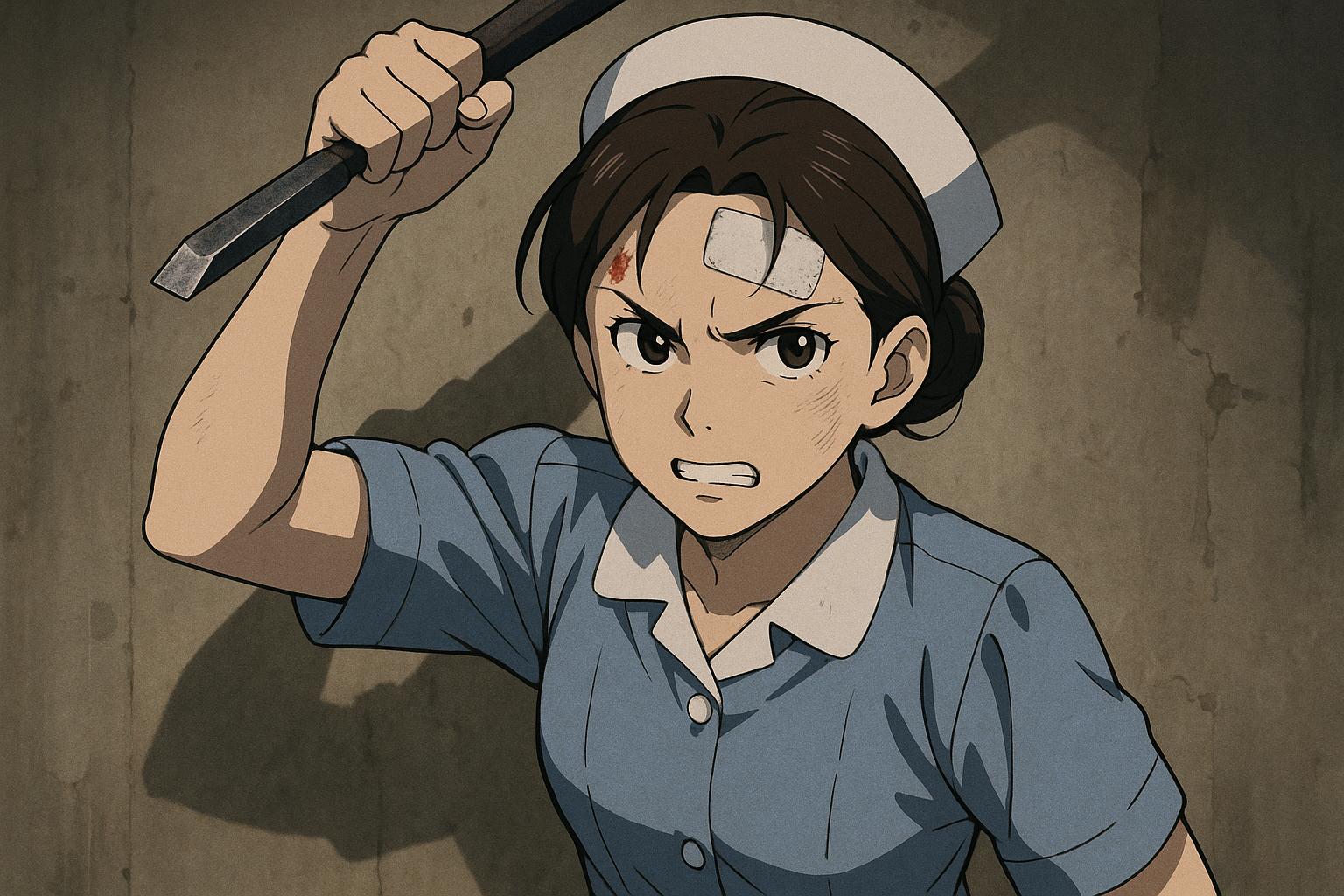Local authority officials in Renfrewshire face scrutiny after a court ruling mandated them to compensate a staff nurse £88,693 for severe injuries sustained from a workplace incident involving a falling chisel. The judgement, issued by Judge Lord Braid at the Court of Session in Edinburgh, underscores the tangible and lasting consequences of workplace negligence.
The incident unfolded on October 6, 2021, at the nurse's brother's home in Linwood, where she was struck unexpectedly by a chisel that fell from a height of 30 feet. It weighed approximately four kilograms and measured 2.5 feet in length. At the moment of impact, the nurse, then 48 years old, had been bending down to clean her trainers. The repercussions of this sudden incident were profound and immediate; she was quickly hospitalised, where she experienced a range of symptoms, including confusion, vomiting, and sleep disturbances. A subsequent medical examination revealed a small fracture to the right side of her skull, leading to persistent headaches and tinnitus, which plagued her daily life.
Judicial findings highlighted a significant deterioration in the nurse’s quality of life post-incident. Lord Braid noted that not only was her physical health compromised—characterised by migraines four times a week and continuous tinnitus—but her mental well-being was also affected. The nurse’s condition, described as a “loud, persistent fuzzy noise,” earned a severity rating of four out of five from medical professionals. She reported that the relentless nature of her tinnitus has had a profound emotional toll, spurring anxiety and affecting her social interactions.
Most notably, the court heard that the once-engaging woman noted a drastic shift in her personality, accompanied by increased irritability and episodes of panic. Activities and responsibilities that were once second nature to her became daunting tasks, as her husband took on the lion's share of household duties. Her ability to work was also severely restricted, as she transitioned from her role in orthopaedics to a position in an elective orthopaedic ward.
Importantly, the council's legal representatives admitted liability for the incident, acknowledging that their employees’ actions had directly caused the accident. This candid acceptance of responsibility reflects a broader trend seen in similar cases involving local authorities. For instance, in a separate ruling concerning NHS Lothian, a nurse received around £50,000 following a slip on a wet floor. Such cases illustrate a recurring theme of negligence within public institutions leading to severe repercussions for healthcare workers and highlight the critical need for stringent safety protocols.
Renfrewshire Council, having settled numerous claims for slips, trips, and falls in the past five years totalling nearly £450,000, now faces mounting scrutiny over its health and safety measures. The recent ruling accentuates the potential for escalating costs associated with inadequate workplace safety and the imperative for local authorities to enhance protective measures for both staff and citizens. With ongoing claims still pending, including those dating back to 2016, the council's financial liabilities could rise further, calling for urgent investment in safety infrastructures.
In conclusion, this case not only serves as a sobering reminder of the dangers present in seemingly mundane environments but also highlights the vital importance of accountability in public institutions. The court's ruling stands as a critical step towards ensuring that similar incidents are mitigated in the future, fostering a safer working atmosphere for the dedicated professionals serving the public.
Reference Map
- Paragraphs 1, 2, 3, 4, 5, 6, 7
- Paragraphs 1, 3, 4, 6
- Paragraphs 3, 4
- Paragraphs 3, 4
- Paragraphs 5
- Paragraph 5
- Paragraphs 5, 6
Source: Noah Wire Services
